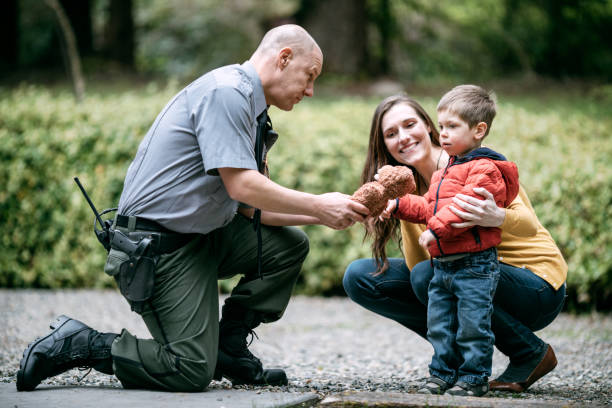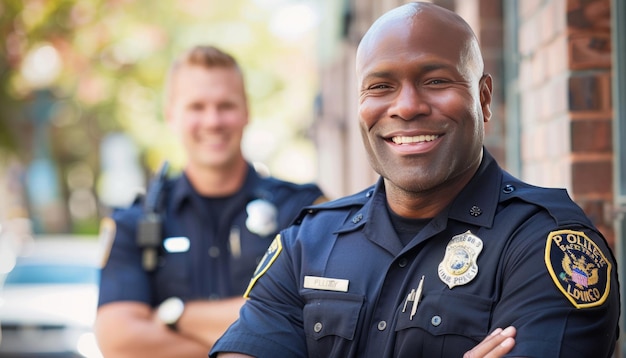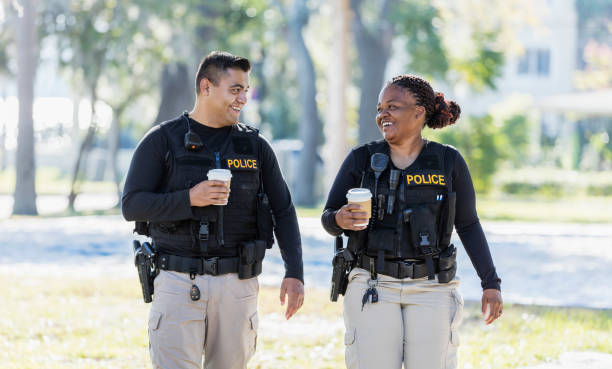Introduction
Effective communication is pivotal in fostering stronger relationships between law enforcement and the community. Building trust and collaboration requires a deliberate and strategic approach to communication. By employing effective communication strategies, police departments can enhance community engagement, address concerns, and improve overall public safety. This blog post outlines actionable communication strategies for law enforcement agencies and highlights how Officer Survey can support these efforts in building stronger community relationships.
The Role of Communication in Community Policing
- Trust Building
Effective communication is essential for building trust between law enforcement and the community. Transparent and open dialogue helps demystify police actions and decisions, fostering mutual respect and understanding. - Problem-Solving
Communication is a key component in collaborative problem-solving. Engaging with community members helps identify local issues and work together to develop solutions that address these concerns. - Crime Prevention
Through proactive communication, police departments can share information about crime trends, safety tips, and preventive measures. This transparency helps keep the community informed and engaged in crime prevention efforts. - Addressing Concerns
Open lines of communication enable police departments to address community concerns promptly. Listening to and addressing grievances helps prevent escalation and maintains a positive relationship with the community.
Effective Communication Strategies for Law Enforcement
- Establish Regular Channels of Communication
Regular communication channels, such as community meetings, newsletters, and social media updates, keep the community informed and engaged. These platforms provide opportunities for officers to share information, address concerns, and receive feedback. - Utilize Social Media Wisely
Social media is a powerful tool for communication and engagement. Police departments can use platforms like Twitter, Facebook, and Instagram to share updates, promote community events, and respond to inquiries. It’s essential to maintain a consistent and professional presence online. - Engage in Active Listening
Active listening involves fully concentrating, understanding, and responding to community members’ concerns. This approach demonstrates respect and helps build rapport. Officers should practice active listening during interactions and community meetings. - Develop Community Partnerships
Building partnerships with local organizations, businesses, and community leaders enhances communication efforts. These partnerships facilitate collaboration on community initiatives and provide additional channels for sharing information and receiving feedback. - Implement Community Policing Initiatives
Community policing emphasizes collaboration between police officers and community members. By working closely with residents, officers can better understand local issues and address them effectively. Initiatives such as neighborhood watch programs and community forums foster trust and cooperation. - Provide Transparency and Accountability
Transparency in police actions and decision-making builds trust and credibility. Departments should regularly report on their activities, share information about police procedures, and be open about their responses to community concerns. Accountability measures, such as citizen review boards, also contribute to a culture of transparency. - Offer Educational Programs
Educational programs and workshops help demystify police work and educate the community about law enforcement practices. These programs can cover topics such as legal rights, crime prevention, and the role of police officers in the community.
How Officer Survey Supports Effective Communication
Officer Survey can enhance communication strategies by providing tools that facilitate community engagement and feedback collection. Here’s how the platform supports effective communication:
- Customizable Survey Tools
Officer Survey’s customizable survey tools allow departments to create surveys tailored to specific communication goals. Surveys can be designed to gather feedback on community concerns, assess the effectiveness of communication strategies, and evaluate public perception. - Real-Time Feedback
The platform’s real-time feedback capabilities enable departments to quickly assess community responses and adjust their communication strategies accordingly. Timely insights help departments stay responsive to community needs and concerns. - Efficient Data Collection
Officer Survey streamlines the process of collecting and analyzing feedback. Departments can efficiently distribute surveys and gather responses, reducing administrative burdens and enabling more effective communication with the community. - Actionable Insights
Officer Survey’s advanced analytics provide actionable insights into community feedback. Departments can identify trends, measure the impact of communication efforts, and make data-driven decisions to enhance their communication strategies.
Best Practices for Implementing Communication Strategies
- Be Consistent and Transparent
Maintain consistency in communication and be transparent about police actions and decisions. Regular updates and honest dialogue build trust and credibility with the community. - Seek and Act on Feedback
Actively seek feedback from the community and use it to improve communication strategies. Demonstrating responsiveness to feedback reinforces the value of open dialogue and enhances community relationships. - Evaluate and Adapt
Regularly evaluate the effectiveness of communication strategies and adapt them as needed. Continuous improvement ensures that communication efforts remain relevant and impactful.
Conclusion
Effective communication is essential for building stronger community relationships and enhancing public safety. By implementing strategic communication approaches and utilizing platforms like Officer Survey, law enforcement agencies can foster trust, address concerns, and collaborate more effectively with the community. Emphasizing transparency, active listening, and community engagement will strengthen relationships and contribute to more successful policing outcomes.






